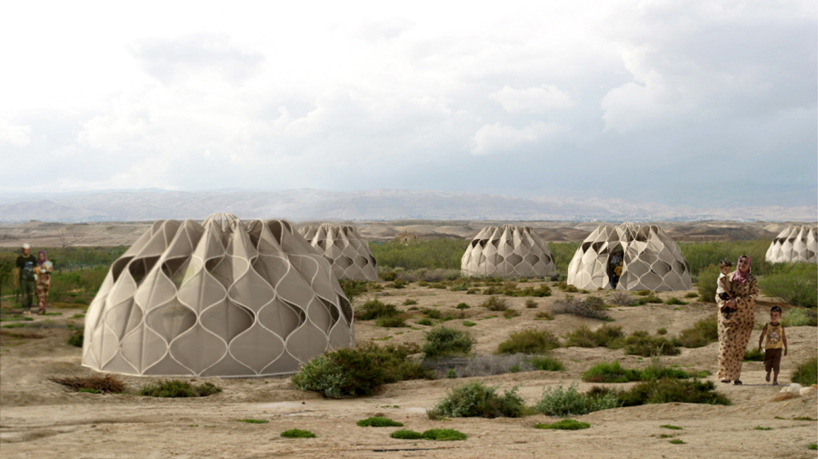 |
| all images courtesy of Abeer Seikaly |
‘Weaving a Home’ by jordanian/canadian designer
Abeer Seikaly proposes a
disaster shelter for refugees that is based on temporary huts of nomadic tribes. the use of
structural fabric references
ancient traditions of joining linear fibers to make complex three-dimensional shapes – the resulting pattern is easy to erect and scale into various functions, from a basket to a tent.
The project incorporates technological advances and new methods of assembly of the material, envisioning a system composed of durable plastic members that are threaded to form a singular unit. These flexible envelopes fold across a central axis, with the hollow structural skin enabling necessities such as water and electricity to run through it, similar to a typical stud wall.
‘weaving a home’ was shortlisted for the 2012
LEXUS DESIGN AWARD, a designboom competition run in collaboration with LEXUS.
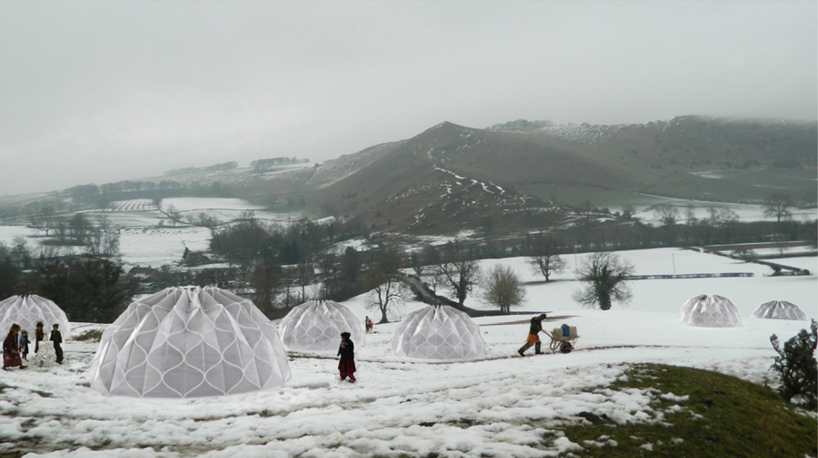 |
| view of the tent structures closed during winter |
Exposure to the surrounding elements can be controlled by manipulating the units into different scales and opening and closing the exterior skin. the lightweight, structural fabric seeks to help people weave their lives back together, as they construct the mobile pieces into a home.
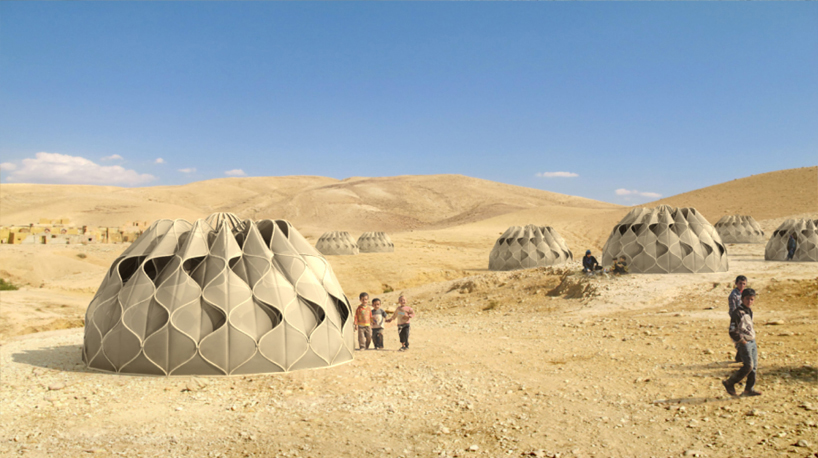 |
| view of the tent structures during the day |
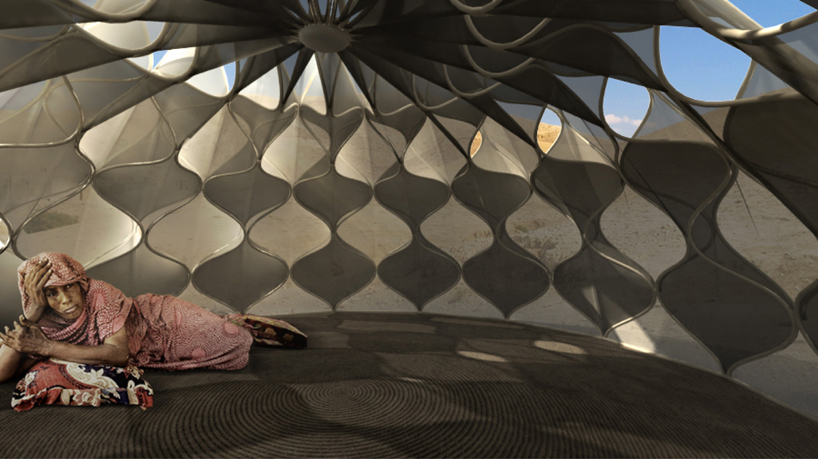 |
| interior view of the tent when open, the layered skin provides pockets for storage |
 |
| view of the tent structures during the night |
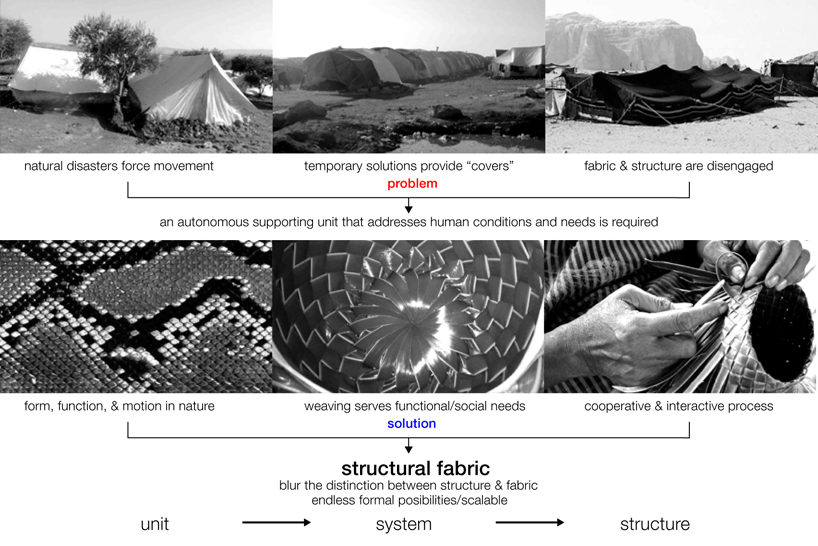 |
| weaving a home |
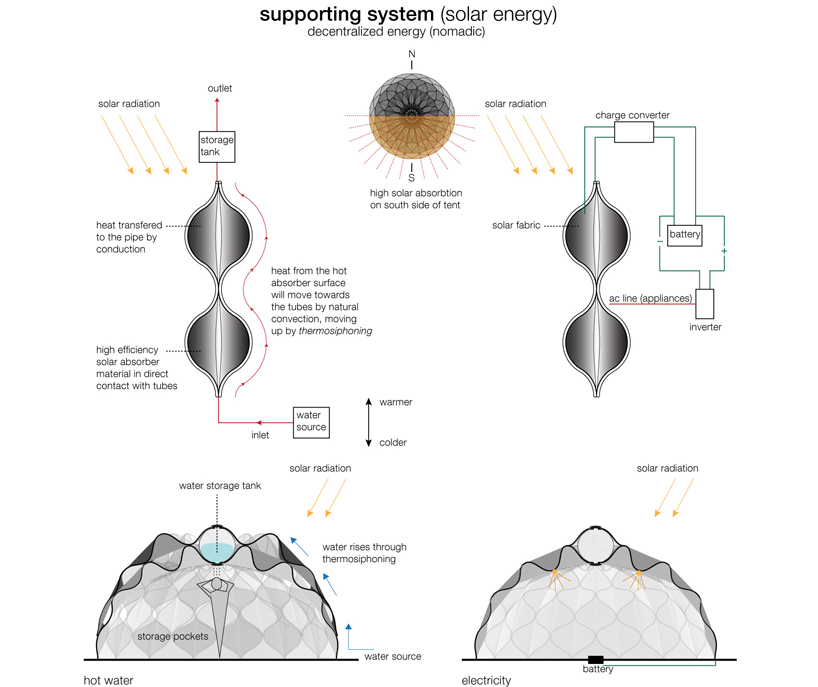 |
| weaving a home |
 |
| weaving a home |
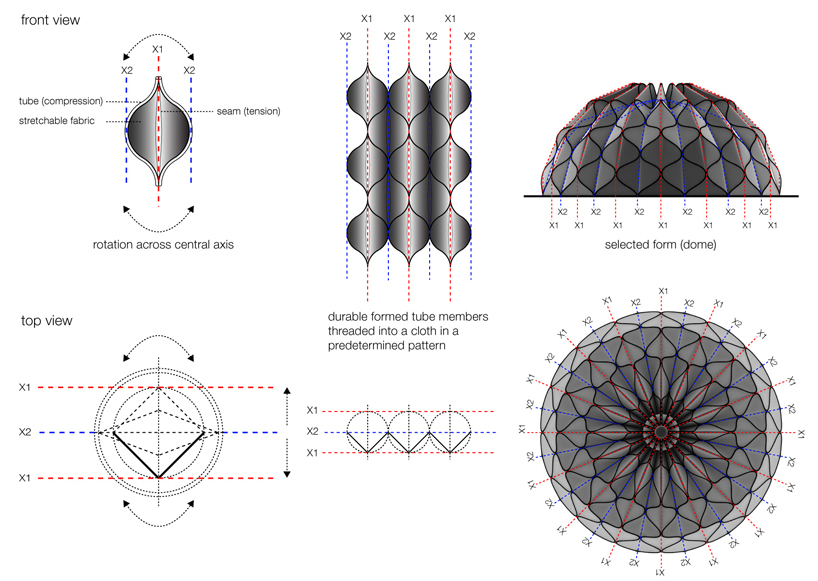 |
| drawings of the single-layer fabric skin |
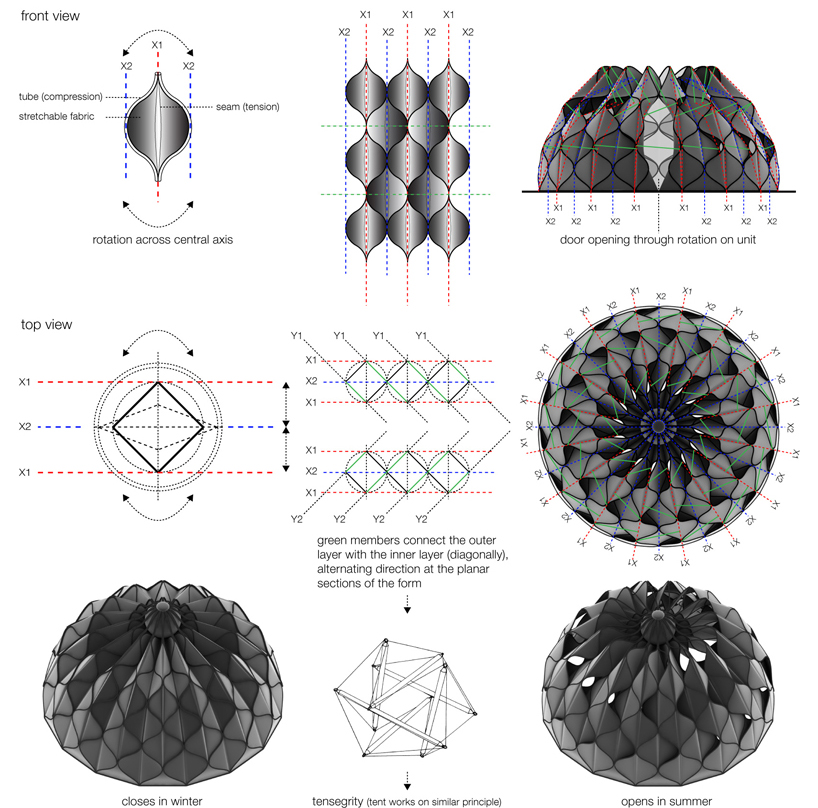 |
| drawings of the double-layer fabric skin |
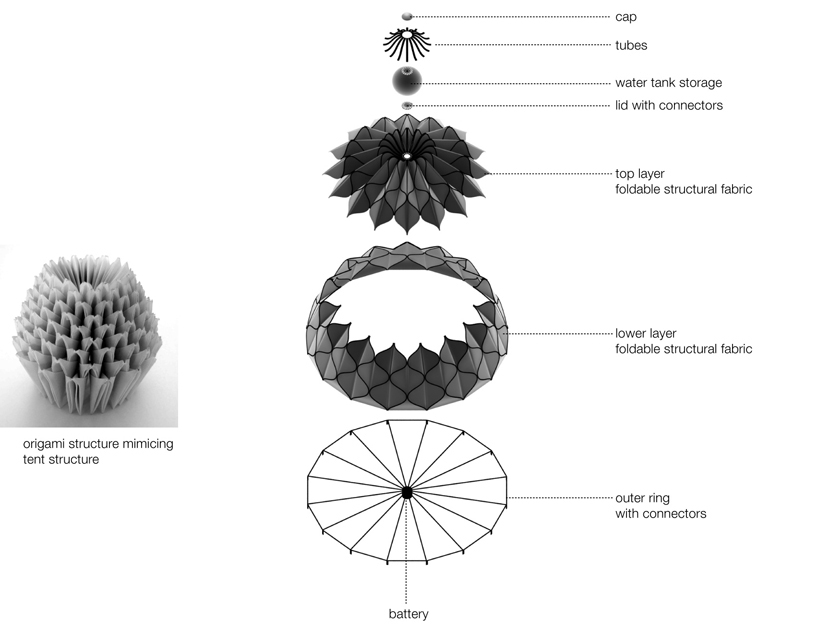 |
| assembly diagram |
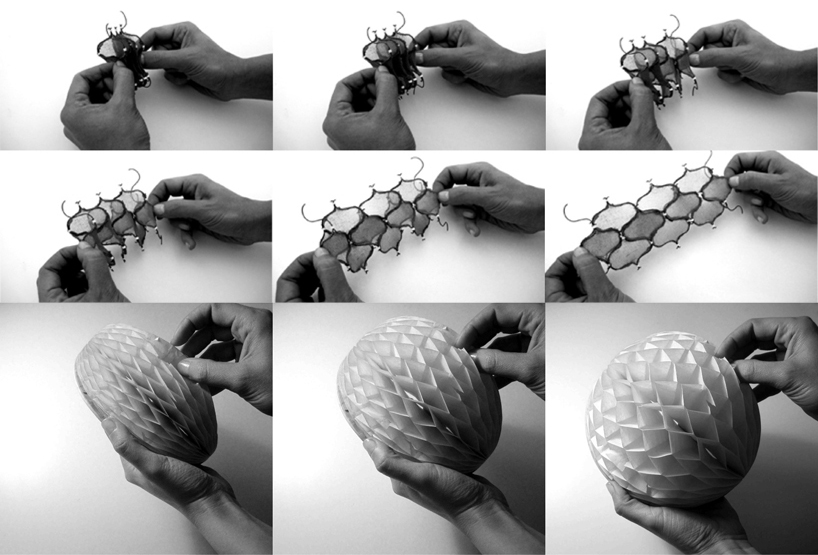 |
| models showing how the structure collapses down |
 |
| model studies with cut and scored paper turned into a flexible pattern |













Comments
Post a Comment